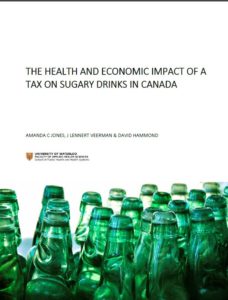Pediatric Academy and Heart Association endorse soda taxes!
The American Academy of Pediatrics (AAP)) and the American Heart Association (AHA) have issued a joint statement endorsing soda taxes along with other policies aimed at reducing risks for childhood obesity (the full statement is published in Pediatrics).
The AAP and AHA recommend:
- Local, state and national policymakers should consider raising the price of sugary drinks, such as via an excise tax, along with an accompanying educational campaign. Tax revenues should go in part toward reducing health and socioeconomic disparities.
- Federal and state governments should support efforts to decrease sugary drink marketing to children and teens.
- Healthy drinks such as water and milk should be the default beverages on children’s menus and in vending machines, and federal nutrition assistance programs should ensure access to healthy food and beverages and discourage consumption of sugary drinks.
- Children, adolescents, and their families should have ready access to credible nutrition information, including on nutrition labels, restaurant menus, and advertisements.
- Hospitals should serve as a model and establish policies to limit or discourage purchase of sugary drinks.
Comment: This action of the AAP is truly remarkable. In 2015, this Academy was heavily criticized for taking funding from Coca-Cola and, surely not coincidentally, saying little about the need for children to reduce consumption of sugary drinks. Once exposed, the AAP said it could no longer accept that funding. I did, however, hear an alternative story. Coca-Cola officials told me that as a result of their transparency initiative, the company would no longer fund the Pediatric, Dietetic, and Family Practice Academies. It is also hardly a coincidence that now that the AAP no longer takes money from Coke, it is free to promote soda taxes as a useful public health strategy.


